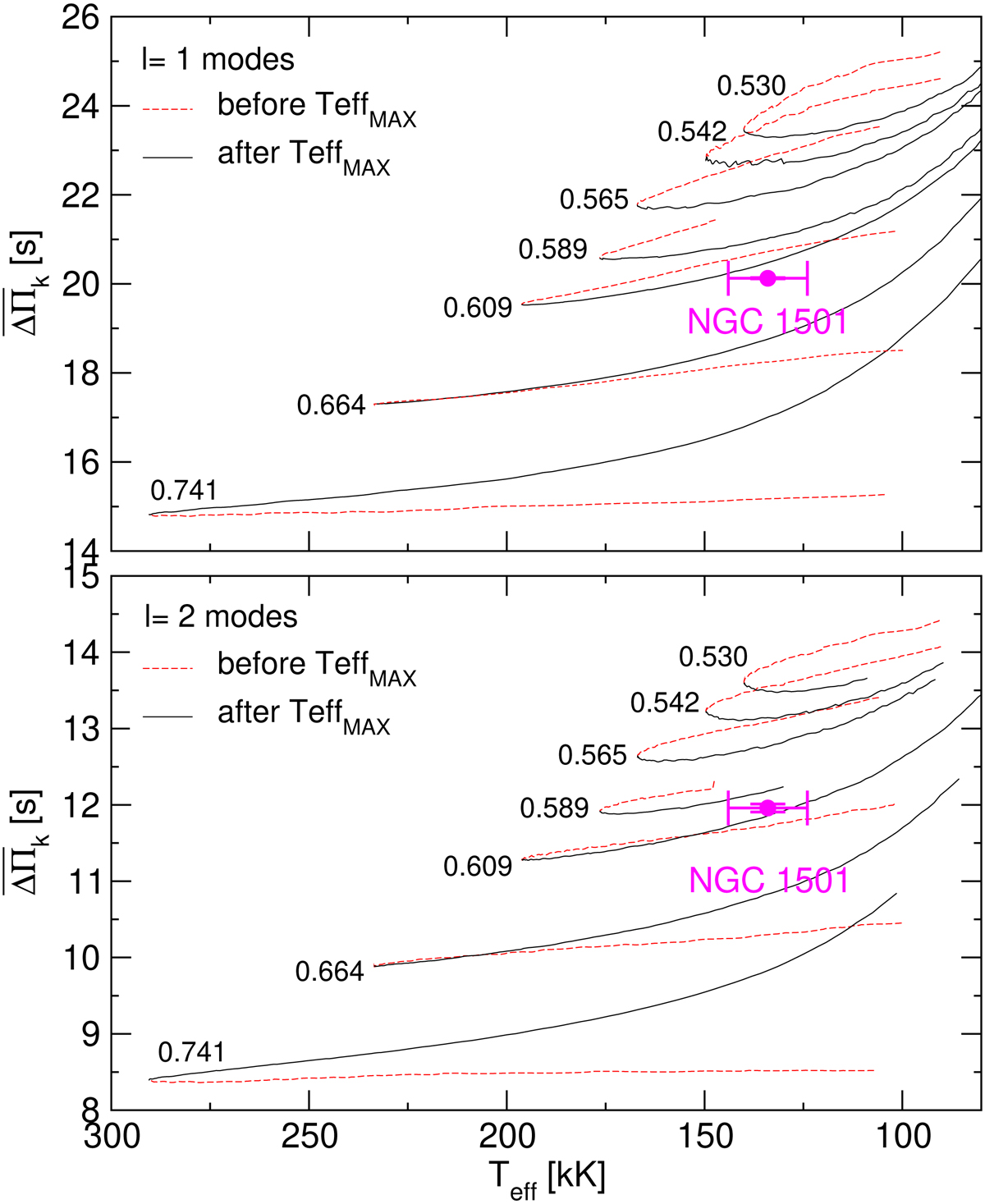Fig. 30.

Upper panel: dipole (ℓ = 1) average of the computed period spacings, ![]() , assessed in a range of periods that includes the periods observed in NGC 1501, shown as solid (dashed) curves corresponding to stages before (after) the maximum Teff for different stellar masses. The location of NGC 1501 when we use the effective temperature derived by Werner & Herwig (2006), Teff = 134 000 ± 10 000 K, and the dipole period spacing, Δ Πℓ = 1 = 20.1262 ± 0.0123 s (derived in Sect. 3.4), is highlighted with a magenta circle. The stellar mass derived from linear interpolation is M⋆ = 0.621 ± 0.015 M⊙ if the star is before the maximum Teff, and it is M⋆ = 0.624 ± 0.015 M⊙ if the star is after the maximum Teff. Lower panel: same as upper panel, but for the case of ℓ = 2 modes (Δ Πℓ = 2 = 11.9593 ± 0.0520 s). In this case, the stellar mass is M⋆ = 0.601 ± 0.015 M⊙ and M⋆ = 0.606 ± 0.015 M⊙, according to whether the star is before or after the maximum Teff.
, assessed in a range of periods that includes the periods observed in NGC 1501, shown as solid (dashed) curves corresponding to stages before (after) the maximum Teff for different stellar masses. The location of NGC 1501 when we use the effective temperature derived by Werner & Herwig (2006), Teff = 134 000 ± 10 000 K, and the dipole period spacing, Δ Πℓ = 1 = 20.1262 ± 0.0123 s (derived in Sect. 3.4), is highlighted with a magenta circle. The stellar mass derived from linear interpolation is M⋆ = 0.621 ± 0.015 M⊙ if the star is before the maximum Teff, and it is M⋆ = 0.624 ± 0.015 M⊙ if the star is after the maximum Teff. Lower panel: same as upper panel, but for the case of ℓ = 2 modes (Δ Πℓ = 2 = 11.9593 ± 0.0520 s). In this case, the stellar mass is M⋆ = 0.601 ± 0.015 M⊙ and M⋆ = 0.606 ± 0.015 M⊙, according to whether the star is before or after the maximum Teff.
Current usage metrics show cumulative count of Article Views (full-text article views including HTML views, PDF and ePub downloads, according to the available data) and Abstracts Views on Vision4Press platform.
Data correspond to usage on the plateform after 2015. The current usage metrics is available 48-96 hours after online publication and is updated daily on week days.
Initial download of the metrics may take a while.


